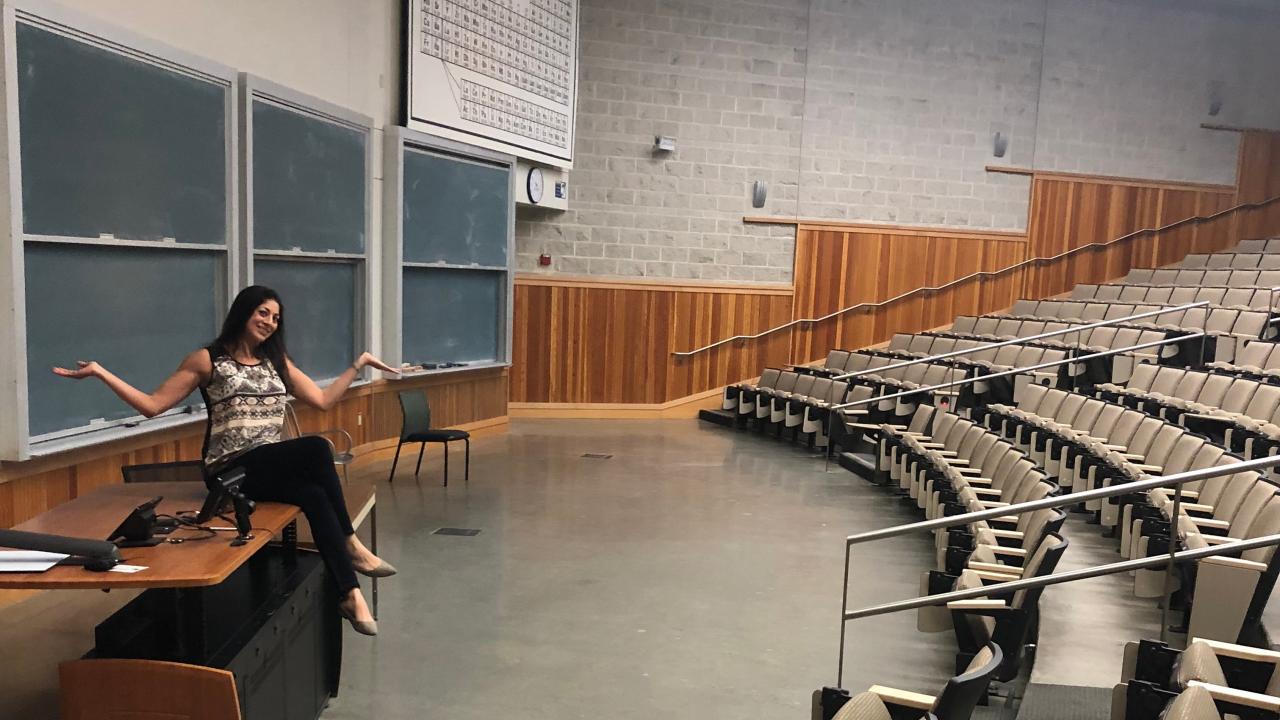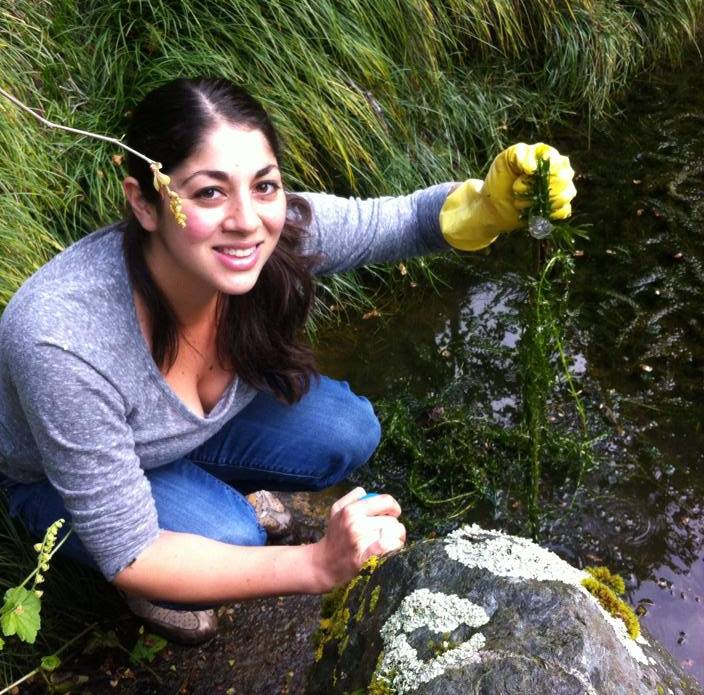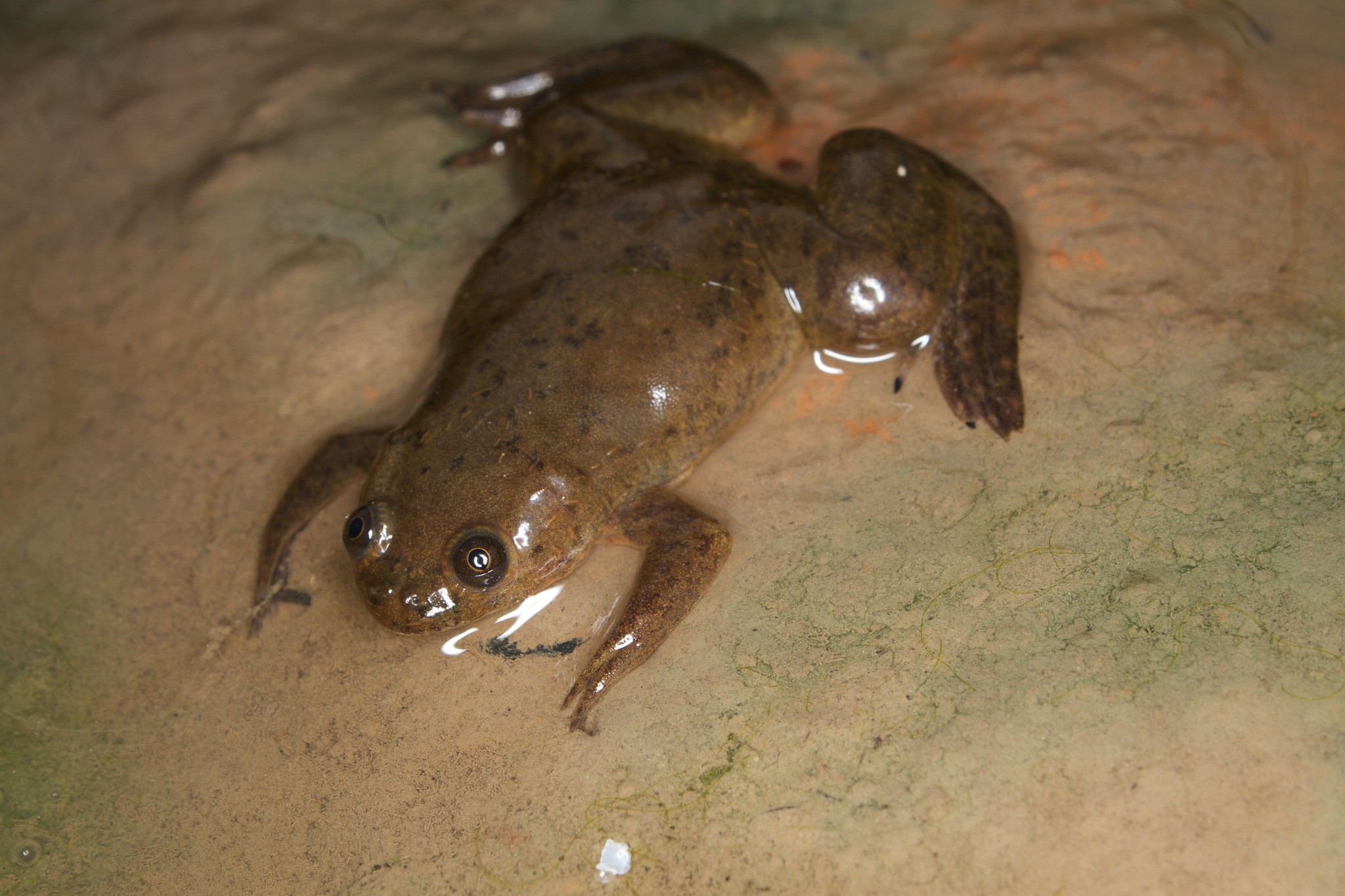
Discovering Curiosity: The Cycle of Mentorship with Assistant Professor of Teaching Marina Crowder
Quick Summary
- Assistant Professor of Teaching Marina Crowder was inspired by her own mentors to pursue a career in teaching and mentorship
- A UC Davis alum, Crowder worked in the labs of Professors JoAnne Engebrecht and Francis McNally as a student
- Today, she teaches courses like "Genes and Gene Expression" and “Introduction to Human Heredity,” and recently developed the course “History of Cancer”
As a freshman at UC Davis, Marina Crowder didn’t have time for undergraduate research. A first-generation college student, Crowder just wanted to get her bearings. She focused her attention on her classes. And when she wasn’t in class, she worked as a restaurant server to support herself.
But during the winter break of her sophomore year, Crowder was in a car accident, one so severe she had to withdraw from classes for a quarter.
“The car accident kind of switched my thinking in realizing that time is going by fast and I need to get involved in something more than just going to class,” said Crowder.
Upon her return to campus, she enrolled in BIS 101 “Genes and Gene Expression,” then taught by Professor JoAnne Engebrecht, Department of Molecular and Cellular Biology.
“It was my first upper division genetics class and I absolutely loved it and I absolutely loved the professor,” said Crowder.
Encouraged by her friends, Crowder approached Engebrecht and asked if there were any undergraduate research opportunities in her lab. There were.
In the Engebrecht Lab, Crowder studied sex-specific differences in the nematode Caenorhabditis elegans with respect to the regulation and timing of meiosis, the division process for producing gametes. The experience led to her first publication in the journal Developmental Biology.
“They really involved me in the project and I got to do my own experiments and really was able to make meaningful contributions,” she said. “It was huge as a first-generation student.”
In a cyclical twist of fate, Crowder now occupies the role Engebrecht once held for her, as a mentor and the current instructor for BIS 101. Now an assistant professor of teaching in the Department of Molecular and Cellular Biology, Crowder teaches hundreds of UC Davis students each quarter.
“Every day it’s surreal for me when I teach BIS 101 because I identify that course as completely changing my career and my life,” said Crowder. “I really hope that my class can have some kind of impact like that on some of the students I teach.”
Wriggling worms and jumping frogs

By the time she graduated in 2007 with a B.S. in Genetics, Crowder was more familiar with the research landscape. She stayed at UC Davis for graduate school and joined the lab of Professor Francis McNally, Department of Molecular and Cellular Biology, where she continued her investigations into meiosis in C. elegans. Only this time, she zeroed in on female meiosis, specifically the molecular mechanisms governing the positioning of the meiotic spindle, the scaffolding necessary for proper cell division.
As she wrapped up her Ph.D. studies, Crowder looked to her next steps. Where did her passions lie? She liked the workbench but also wanted to explore career options outside the lab. With support from her mentors, she enrolled in a faculty diversity internship program run by the Los Rios Community College District. For six months, Crowder taught an introduction to biology class for non-majors while continuing her Ph.D. studies.
“I had TA experience, but it was the first time that I had thought about teaching as a craft,” she said. It “opened my eyes to professional development and the intentional practice that goes into being an effective teacher.”
Crowder finished a Ph.D. in Biochemistry, Molecular, Cellular and Developmental Biology, and afterward headed further west for a postdoctoral position in the lab of Professor Rebecca Heald, Department of Molecular and Cellular Biology at UC Berkeley. It was as far as Crowder was willing to move. Her father had recently passed away and she wanted to stay close to her mother. “Moving across the country was just not in the cards for me,” she said.
Working in the Heald Lab required Crowder to switch model systems. She no longer dealt in wriggling worms. Instead, she focused on the jumping African clawed frog (Xenopus laevis).
“Typically when you do a postdoc, you’re encouraged to either switch to a different subfield or switch to a different model to gain new experiences,” she said. “I switched model systems but continued my interest in meiosis and mitosis and the underlying molecular mechanisms of spindle architecture and function.”

The tug to teach
Again, Crowder felt the draw to teach. While in her postdoctoral role, she found an opportunity to design and teach her own course at Laney College, a community college in Oakland. The course focused on scientific communications in the biomanufacturing and biopharmaceutical fields.
“I did not consider myself any type of expert on scientific communication but they gave me this course,” she said. “It was really empowering and I learned that I could do this.”
For three years, Crowder worked in the Heald Lab, her work funded by the Ruth L. Kirschstein Postdoctoral Fellowship from the National Institutes of Health. There was about a year or two left in her funding when her alma mater posted a job opening that Crowder couldn’t pass up.
“There was a new teaching faculty position that…opened up in the Department of Molecular and Cellular Biology and it just seemed like a perfect fit,” she said. “I couldn’t pass up applying for this job.”
Crowder landed the job and returned to Aggieland.
As an assistant professor of teaching, Crowder focuses heavily on engaging with undergraduate students at UC Davis. She teaches BIS 101, MCB 10 “Introduction to Human Heredity,” among other courses and recently developed the MCB23 course “History of Cancer.”
While her classes tend to be large, numbering in the hundreds, Crowder wants to ensure each student feels the experience is worthwhile. Part of that is creating a space where her students feel comfortable, that they’re heard and that they’re individuals, not just a face among a sea of faces. To accomplish this, Crowder uses the lecture hall space, moving among the rows of students, creating intimate engagement through proximity.
“I see my role as facilitating them to engage with the content and think about it in different ways,” she said. “Biology for me is fascinating, and it’s beautiful and I love it because we’re always learning something.”
“It’s just fascinating, the way things work,” she added.